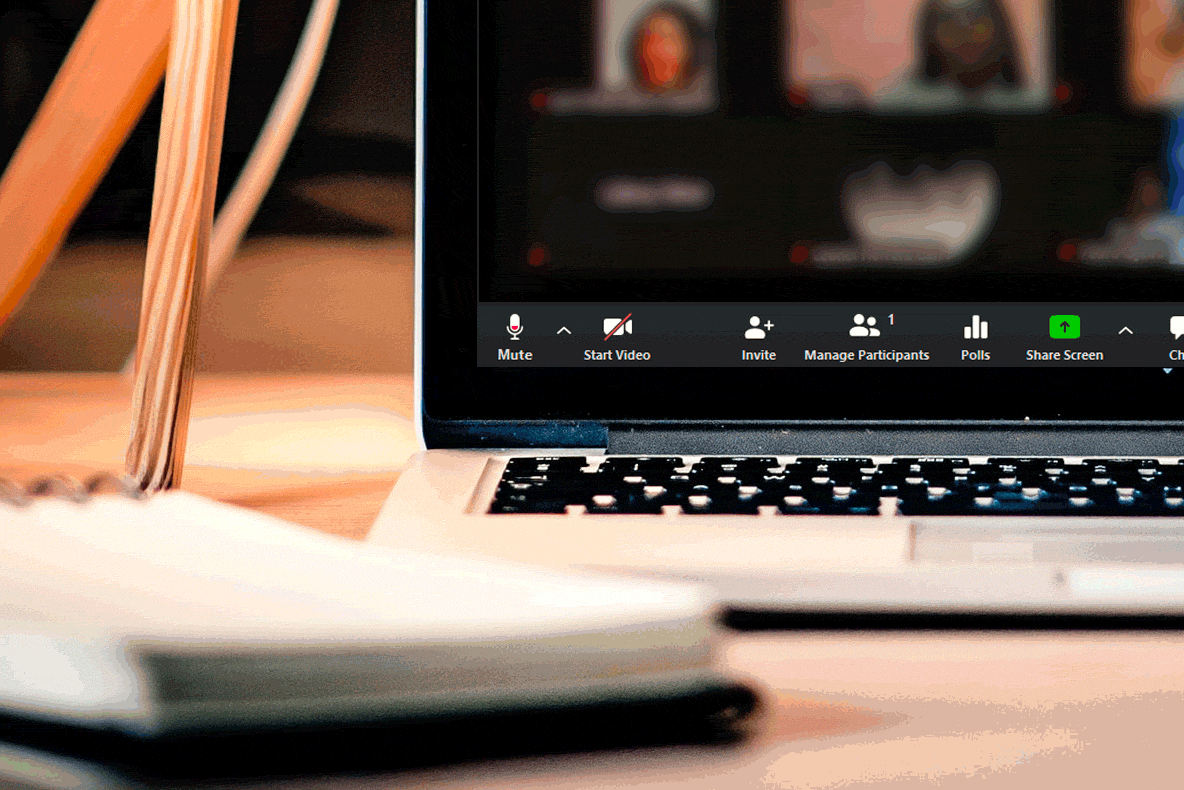Jeffrey Toobin got cocky, and not just in the obvious way. Vice reported on Monday that the New Yorker suspended the well-known legal writer for exposing himself and masturbating on a recent Zoom call with colleagues. Suffice it to say: Yikes! But if you were to scroll past the top 10 or so items on the list of what’s wrong with that picture, you’d eventually get to the bullet point about how Toobin’s phallic mistake was also a mistake of telecommunal hubris: He failed to double-check that he really and truly was only transmitting his junk to the person or people who consented to see it.
Where, it bears asking, was this guy’s FOBO? FOBO, a concept invented by Slate designer Holly Allen, architect of many of Slate’s most influential philosophical frameworks, is the fear of being on. It’s an anxiety characterized by a constant need to check that you are muted, silent, hung up, off-mic, logged off, shut down, incognito, invisible, or otherwise safe from someone hearing or seeing you via technology. Even and especially when you just checked 10 seconds ago. Where social media is credited with giving rise to the (by no means cured) problem of FOMO (fear of missing out), the pandemic’s antisocial rejoinder is our new universal neurosis. At least I thought it was universal.
I thought we were all engaging in this paranoia together, a side effect of videoconference overload brought on by a pandemic that has often confined people to their homes and robbed them of any other means of in-person interactions. Many of us developed the FOBO reflex the hard way and are still nursing scars from early-pandemic failures to mute. (On the bright side, l’affair Toobin has me feeling a little better about mine.)
It’s only logical to be wary that the same contraptions that make connecting so easy could just as easily betray us. Factor in how, before this started, we were already constantly being tracked by social media and cookies and facial recognition software and any number of tools working in concert to chip away at our privacy. It’s enough to make you want to, upon hitting “leave meeting,” quit Zoom, slide on your webcam cover, shut down your machine, put it in a locked box, and throw it into the sea. Just think how much better off all parties would be right now if Jeffrey Toobin’s laptop were sitting at the bottom of the ocean.
At the beginning of the pandemic, some of us foresaw that a Mrs. Doubtfire–tinged incident of sexual misconduct via Zoom was bound to happen eventually, an inevitable result of some unholy amalgam of Murphy’s law, Rule 34, and Chekhov’s gun. Maybe eventually FOBO will be evolutionary, and humans in thousands of years will have it hardwired into them along with fight-or-flight and the horns they’ve grown from smartphone overuse. But here in the present, late adopters have had more than enough time to catch up. It’s well past the time that everyone should know to double- and triple-check and to be prepared to smash your hard drive or SIM card with a mallet if it comes to that. Everyone was pretty gracious about technical difficulties at the beginning of this—the “I can’t hear you”s of March, the pajama-wearing roommate cameos of April, and even the Supreme Court toilet flush in May. But we are now a full seven months into the pandemic. If you aren’t wracked with FOBO and up to your ears in opsec, that’s on you.
There’s nothing admirable about moving through the world with a FOBO deficiency, but I’ll grant you that its absence can be kind of fascinating to consider. Hearing that some people throw caution to the wind (or tempt fate) when they use technology feels like a pulling-back-the-veil moment: There are people that live this way? At the moment, the drawbacks seem disqualifying, but still, can you imagine having the confidence that these people must walk through life with? No FOBO, no FOMO, no FOs at all. Those lucky MOFOs.
